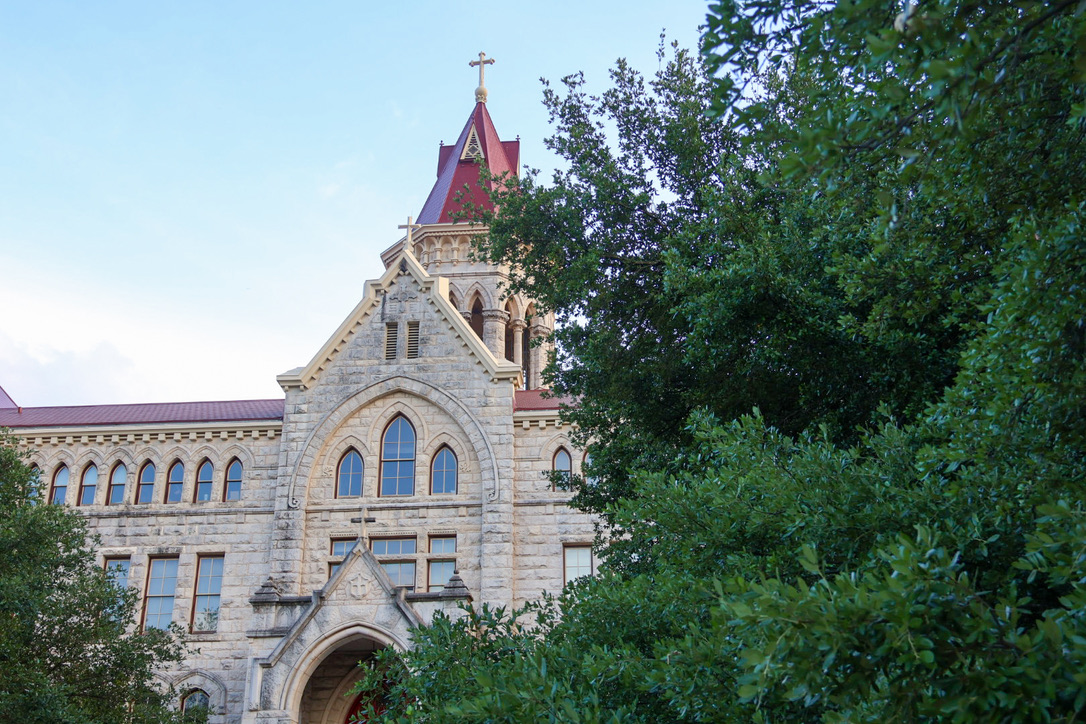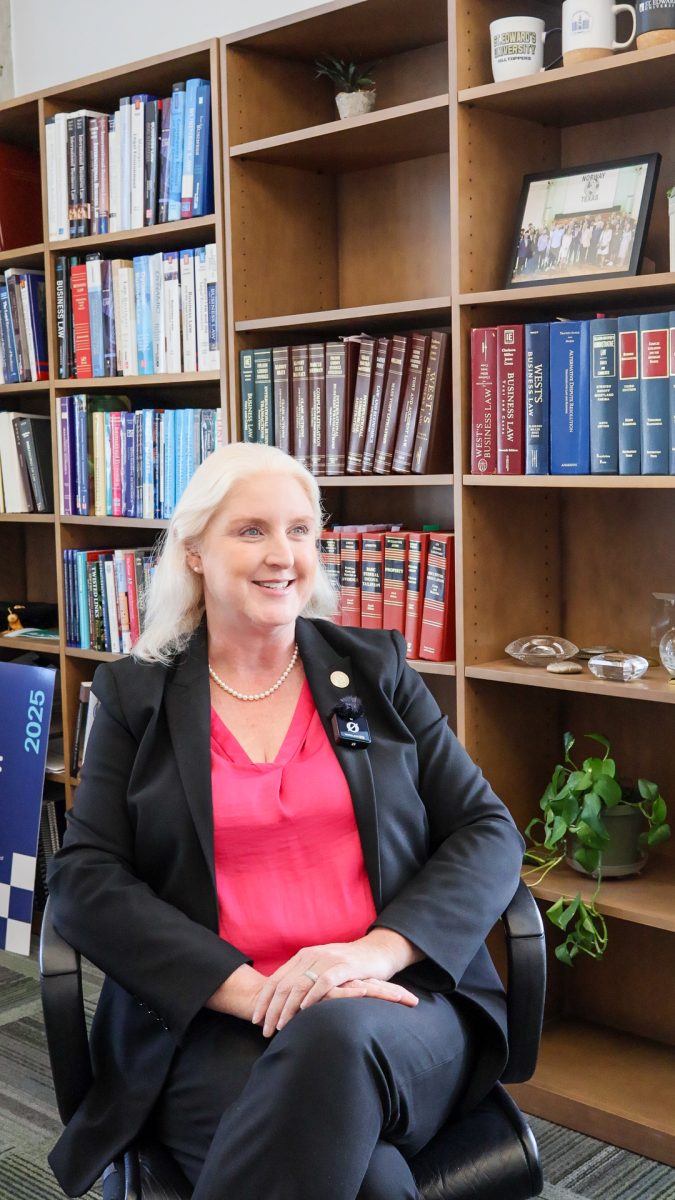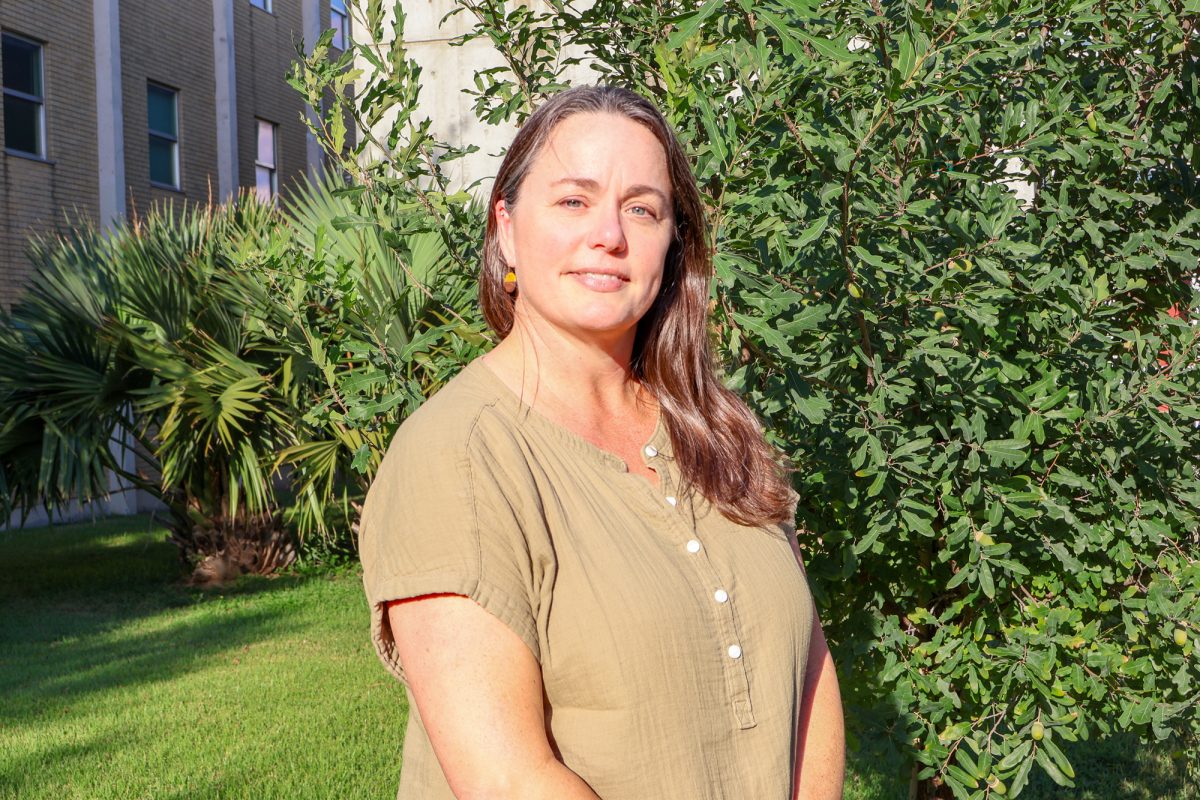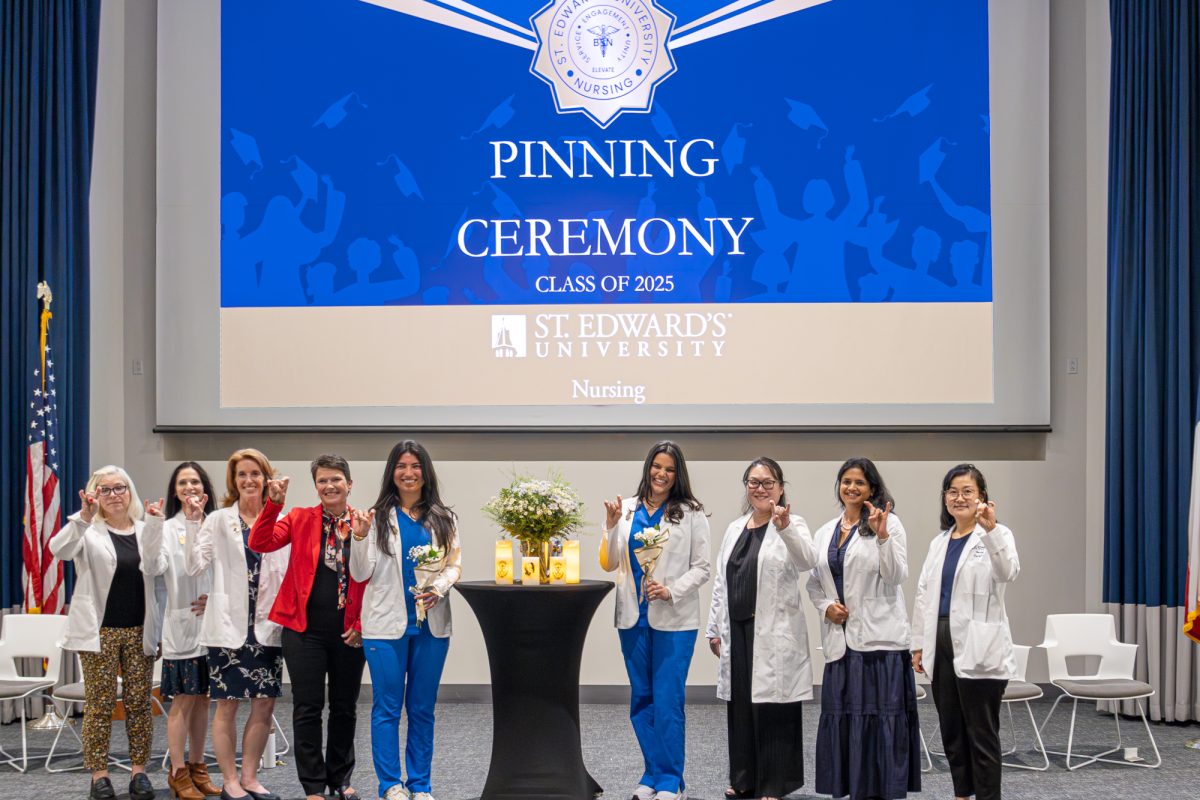The Kozmetsky Center for Excellence at St. Edward’s University brought together immigration experts this past Wednesday to discuss the effects of the upcoming election on U.S. immigration policy. The panel discussion, part of the Center’s mission to promote civic engagement, revealed growing concerns about converging immigration stances between political parties and what to expect in terms of state-level enforcement, particularly in Texas.
The expert panel featured Crystal Gomez, managing attorney at the Texas Immigration Law Council (TXLC), who brought extensive experience in immigration law and advocacy. Joining her was Becky Alemán, program manager at Girl Forward, an organization dedicated to creating opportunities for refugee girls and young women. The discussion was moderated by Angela Ju, Ph.D., a Global Studies professor at St. Edwards and immigration policy expert who rounded out the panel, bringing academic expertise on both federal and state-level immigration policies.
“It was very informative to hear experts discuss such a relevant topic,” said Angie Rodriguez, President of Monarchs on the Hilltop (MOTH), a student organization representing immigrant and first-generation students on campus. Rodriguez particularly valued learning about support organizations, such as Girl Forward, that were discussed during the panel.
Panelists outlined a series of potential changes under a second Trump administration that could fundamentally reshape the American immigration landscape. These changes could include the revival of Title 42 for rapid migrant expulsions, attempts to end birthright citizenship for children of undocumented parents and widespread termination of humanitarian programs, including Temporary Protected Status designations.
In analyzing the current political landscape, the panel highlighted an unexpected shift in Democratic immigration strategy.
“Harris’s proposed policies are surprisingly vague and not far from Trump’s policies,” said Ju. “The two parties have converged on immigration policy, where the democratic party’s policies on immigration have become increasingly similar to those of the Republican party.”
Texas emerged as a crucial focal point in the discussion, with panelists suggesting that state-level initiatives could amplify federal restrictions. Gomez emphasized that state-level challenges would persist regardless of the presidential election outcome.
“Having a Kamala presidency doesn’t make these threats go away,” Gomez said. “We still have a state that has espoused and has said that they have to pick up the slack where the federal government isn’t enforcing immigration law.”
For students wrestling with pre-election anxiety, the panel offered practical insights and community resources.
“It’s really good to know where we stand and the things that we can do as students,” said Arianna Rodriguez, a member of the MOTH media team. “Especially if we’re interested in these types of topics… not only here on campus but in the community.”
Additionally, panelists discussed the state’s recent executive order requiring hospitals to inquire about immigration status.
“We’re going to see this particular executive order, that goes into effect on Friday, probably become a real full-size piece of legislation, a bill, asking hospitals to check the immigration status of their patients,” Gomez said. “I think it’s really important for all of us, regardless of our immigration status, when things like that happen that we also refuse to answer questions like that.”
The panel emphasized the importance of community resilience and proactive engagement in the face of potential policy shifts.
“We know that this is how authoritarianism grows — by fear and people being scared and complying ahead of time,” Gomez said, “ We need to all be resilient in the face of that. Find the people, find attorneys, get connected to networks – this is the time to build community.”
Throughout the discussion, speakers emphasized themes that aligned closely with the Kozmetsky Center’s mission of fostering informed civic dialogue. Aleman concluded on a hopeful note: “There are always people that are willing to help and want to do good work, so when you start to feel alone, just remember you are in a community with a lot of really wonderful people.” She urged eligible voters to consider the impact of their votes on immigrant communities, particularly those who cannot vote themselves.
The discussion painted a picture of an immigration system at a crossroads and the reality that, regardless of electoral outcomes, immigrant communities must prepare for significant challenges while building resilient support networks. Through the insights shared by Gomez, Aleman and Ju, the panel illuminated not just the complexities of current immigration policy, but also the critical importance of community organization and mutual support. As Texas continues to implement stricter state-level measures and national policies evolve, the panelists’ call for proactive engagement and community resilience resonates strongly.









